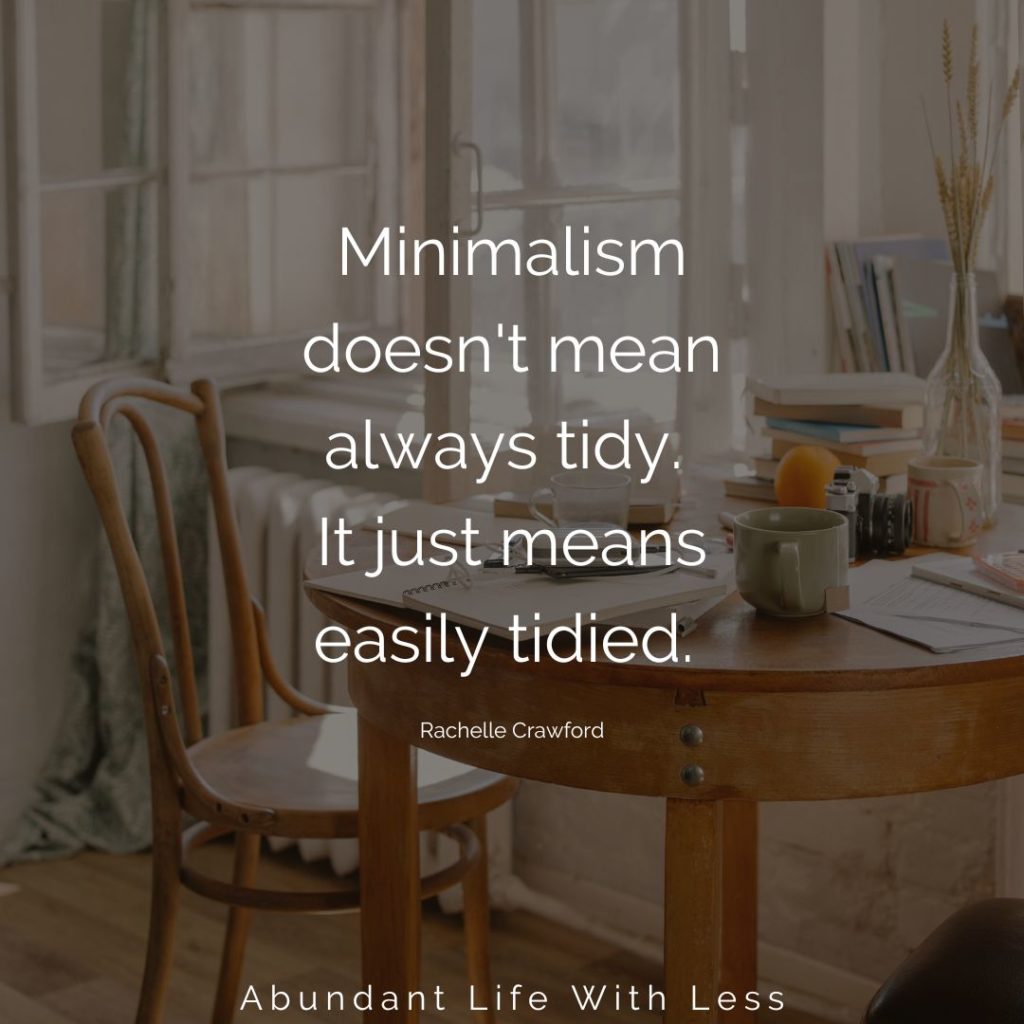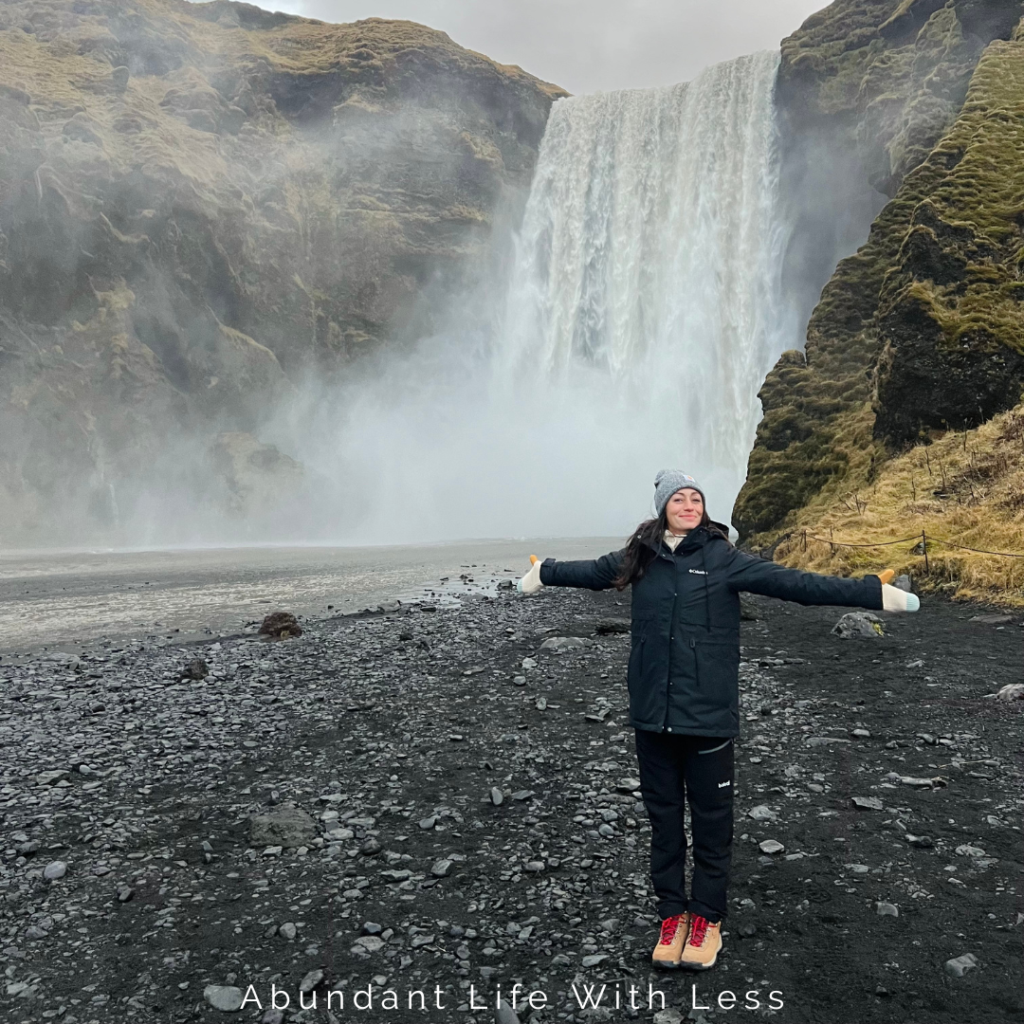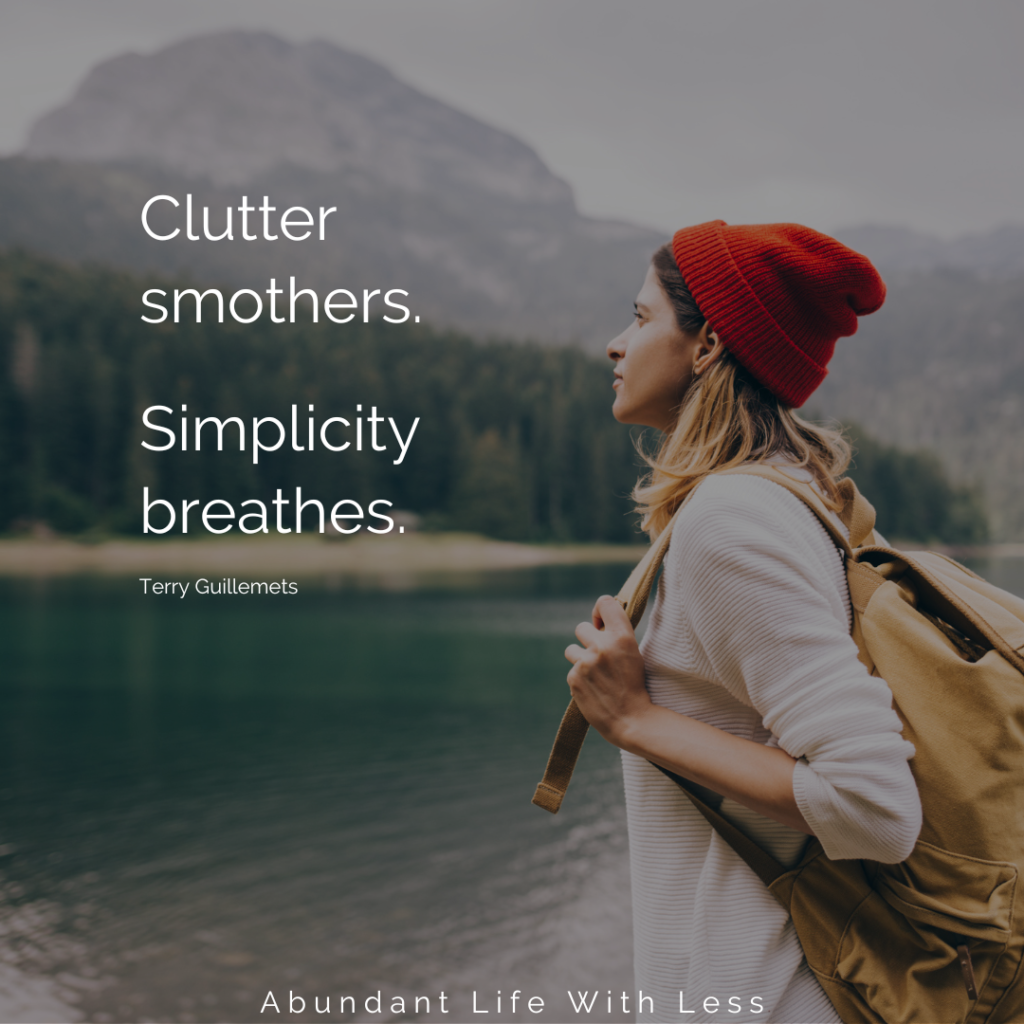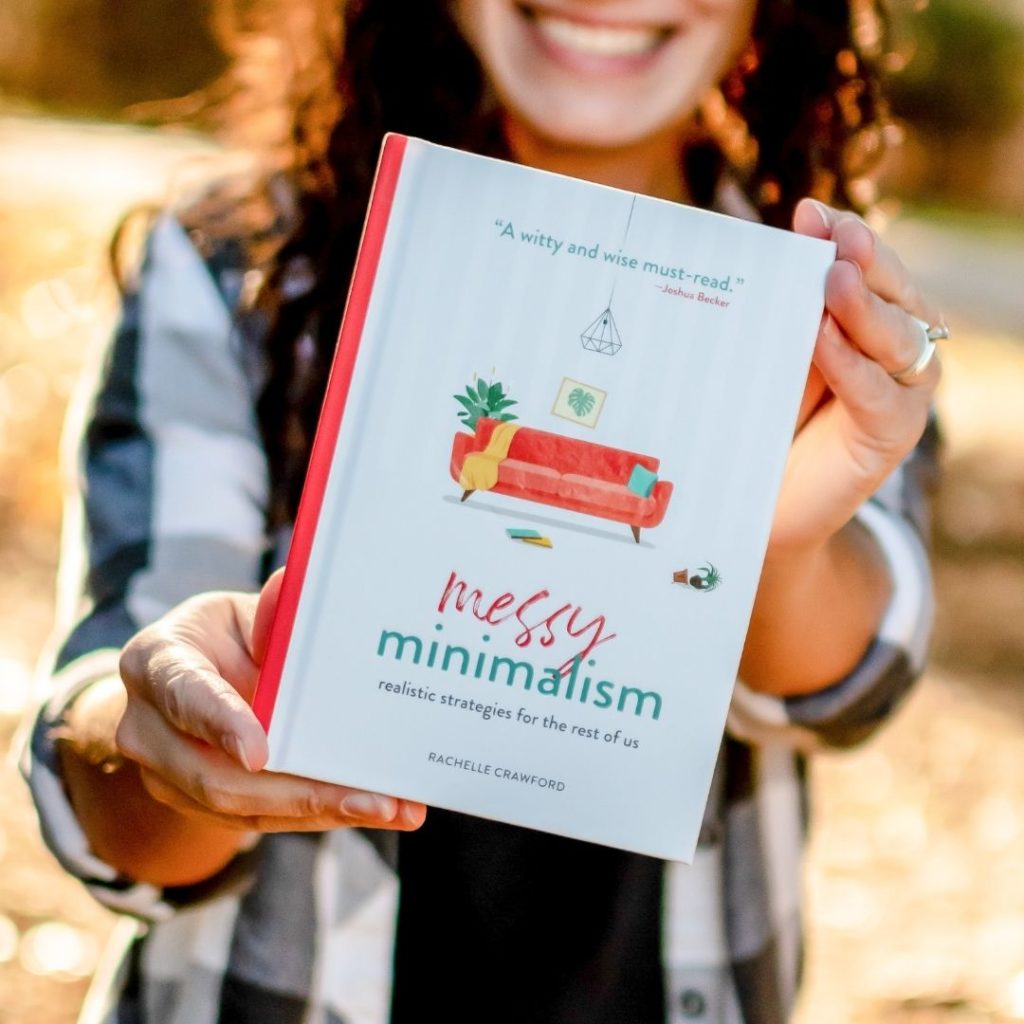Inside: Here you’ll find what it looks like to live as a minimalist for the long haul with 8 ways life is richer because of minimalism.

This month marks eight years since I first learned what minimalism was and enthusiastically embraced it. Sometimes I look around my home and wonder what it would feel like if I hadn’t found minimalism all those years ago. If I hadn’t taken the time to clear out the clutter and shift my priorities from accumulating things to creating more experiences and memories? What would it feel like today if I had remained hyper-focused on organizing and reorganizing our excess stuff instead of just getting rid of it altogether?
While the specific number of “things” we’ve needed has fluctuated up and down with each new season, minimalism has helped us remain extremely intentional about what we add to our home. Prior to minimalism, we paid little attention to it and that lack of intentionality came at too high a price.
In honor of eight years of minimalism here are…
8 Ways my Life is Richer After 8 Years of Minimalism
1. More Grace for the Mess
The grace I give myself and my family after 8 years of minimalism is far greater than the grace I gave us all during that first year. At first I thought maintaining a tidy home with perfection was the most important part of minimalism. I thought it was the only way to safeguard myself from overwhelm, and wear the label of minimalist. After all, a minimalist family wouldn’t have a mudroom floor peppered in shoes and coats. A minimalist mom wouldn’t let her kids have “too many” stuffed animals.
Today however, I’ve embraced minimalism as a mindset rather than an aesthetic. It isn’t a set of rules that puts numerical boundaries around outfits, stuffed animals and kitchen gadgets. It’s a lifestyle that ensures we aren’t keeping more than we care to manage. It helps us keep our eyes on generosity over the accumulation of more, our minds on the present rather than the what ifs, and our hearts grounded in faith and on our family.
2. A Home that is Easier to Tidy up
Three pairs of shoes are easier to put away than twenty. Four pairs of pants take less time to fold and put away than twelve. It’s simple math. Owning less stuff will allow you to spend less time tidying up. As someone who hates using my precious minutes cleaning, this is a beautiful gift.

We moved across town a year ago and that move was also made much easier thanks to minimalism. Don’t get me wrong, moving was still mentally, physically and emotionally taxing. But I don’t even want to think about how much harder it would have been had we not decluttered our home all those years ago.
3. A Simpler Solution to Clutter Related Stress
Prior to minimalism, when I’d feel overwhelmed by my home, I assumed it was either me or my space that was the problem. I’d either resort to shame based thinking, “What is wrong with you? Why can’t you keep this space clean?” Or I’d turn to consumerism in search of a solution. Ironic, I know. I’d wonder if maybe I just needed a bigger home, a renovated kitchen, a better closet system, or more organizational bins.
Now, however, the solution is simple. I ask myself, “What needs to go?“
More often than not, frequently problematic areas of our homes are simply an excess stuff problem. If something is taking more time to tidy than you’d like to devote to it, consider the ways you can simplify the area before trying to reorganize it. What can go? What can you stop doing? How can you eliminate the stressor altogether?
4. More Intentional with My Time
Notice I didn’t say I have more time. It’s certainly true that minimalism can help you create more time. But the reality is, if you aren’t intentional, it’s easy to turn around and fill that time with more unnecessary activities and tasks. Minimalism not only gifted me the option for more free time, it also gifted me the opportunity to fill it more wisely.
There are times when I decline invitations, avoid over committing, and safeguard large amounts of free time. There are also times when I dive head first into time consuming new projects, drive my teenagers to a million different events, and manage a jam packed family calendar.
The difference now is that we’re intentional about it. We know that we aren’t beholden to every activity that presents itself to us. Instead, we can be purposeful about where we allocate our time.
5. Memories for days!
With #experiencesoverthings as our new mantra, we started racking up memories far faster than we would have otherwise. Now we’re looking back on eight years worth of extra memories that I’d never exchange for a nice car, more shoes or a closet full of kitchen gadgets.

Putting your efforts into accumulating memories over material possessions will have a compound effect and the investment is worth the effort.
6. Kids Who Know Stuff isn’t the Answer
Eight years is a long time in kid years. We’ve gone from decluttering action figures and hot wheels to navigating Nikes, screen time and athletic overcommitment. The challenges you’ll face as a minimalist family will change as fast as an overnight growth spurt turns your son’s khaki pants into capri pants.
In the end though, raising kids in a minimalist home isn’t about the perimeters you put around the number of toys they are allowed to keep. It’s not about the Instaworthy photos you’re able to get of their impeccably tidy bedrooms. It isn’t even about raising kids who agree that one pair of summer Birkenstocks is all a girl needs for seven months out of the year.
It’s about kids who put people over possessions. Who prioritize experiences over things, and don’t hinge their self worth on the stuff they own. An easily tidied living space is just a perk.
7. Easier to Locate the Items You Use
It’s simple. With less stuff to sift through, you’re less likely to lose stuff. I mean, I still lose my coffee almost every morning, but at least I’m not sifting through a pile of shoes I don’t even like to find the pair I do.
Minimalism has taught us to become quick to eliminate the things we are done with, and good at keeping the things we don’t need from entering our house in the first place. This helps keep the clutter from accumulating, and therefore, prevents our important stuff from getting lost.

8. Ignore Trends
One of my biggest revelations after embracing minimalism was just how much my purchasing decisions were influenced by trends. Trends only exist because companies are marketing new items to us with every new season. From the thickness of your shoe’s sole and the width of your jeans, to the color of your walls and fabric of your couch, it all exists on an ever moving target determined by other people. When new styles emerge, we feel the pressure to update our stuff without even realizing it. Our taste in style is being manipulated by advertisers whose job it is to sell us stuff.
Minimalism helps you break out of that matrix and start making decisions for yourself. You don’t need to replace your perfectly good items because someone far away publishes an article declaring your favorite jeans outdated.
Maintaining a minimalist lifestyle for the long haul is the same as sticking with any healthy lifestyle choice. You make the choice because you know it’s worth the effort. When you start to see the benefits, it becomes a habit worth sticking with. That’s where we’re at around here. We’ve developed a habit of less. Every new purchase is first put to the test: Do we really need it? Why do we want it? Does it add value to our life? Will it just quickly become clutter?
Only time will tell how my kids apply the principles of minimalism to their own lives once they’re grown. I suspect there are parts that are going to stick and parts they’ll let go of. In fact, I hope that’s true. Minimalism works best when you make it your own. If in the end though, the only thing they get out of minimalism is a more engaged, less stressed out mother, it will have been worth it.





